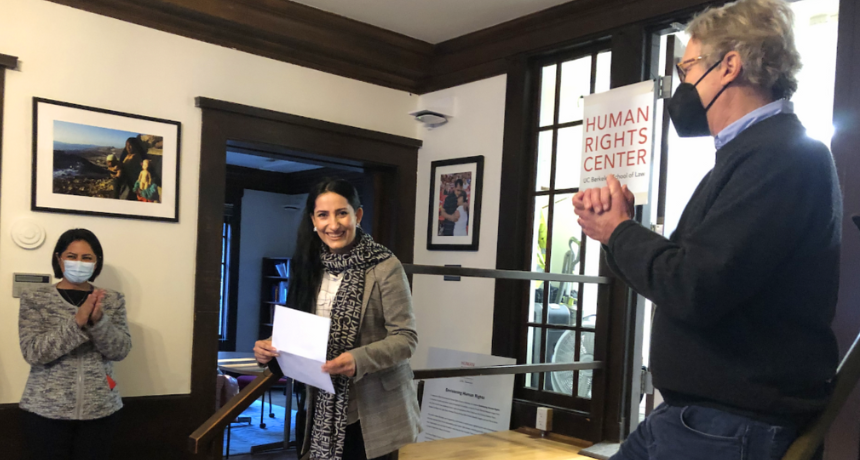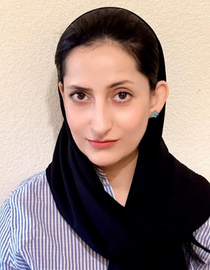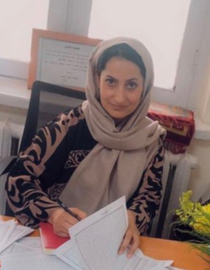
By Andrew Cohen
Less than a year ago, Basira Qazizada seemed to have it all. Not even 30, she was an established judge at the Supreme Court of Afghanistan’s Kabul Commercial Primary Court, part of a burgeoning legal system providing hope and stability to the nation.
But on August 15, 2021, everything changed. While in her office wrapping up some cases, a co-worker rushed in and announced that the Taliban had taken over the city and released everyone in prison, including Talibs.
“It happened so suddenly,” she says. “Me and two colleagues who were also women were told to leave immediately, to save our lives. Another colleague helped us with a car, and we went home. We said goodbye to each other and didn’t think we’d survive after that night. We felt sure that we would be killed.”
Like other women judges in Afghanistan, Qazizada was used to receiving regular threats. They included letters from men affiliated with the Taliban and ISIS, vowing to kill her and her family after she made a decision against them in court.
“Even before the Taliban took over, they told their soldiers that if they could kill a judge, especially women, they would receive $100,000 Afghani,” she says. “After that, two women judges were executed by Talibs in front of their homes in broad daylight, with impunity. Someone once tried to assassinate me and my colleagues at work — they were shooting at us through the ceiling into my office.”

When the Taliban regained power, Qazizada hid at her sister’s house. In contact with fellow members of the International Association of Women Judges and Afghan Women Judges Association on WhatsApp, she got a call from Polish lawyer Anna Kruszewska, who had heard about her. Qazizada credits Kruszewska, known for her role in the evacuations, and the government of Poland with saving her life.
When the Taliban regained power, Qazizada hid at her sister’s house. In contact with fellow members of the International Association of Women Judges and Afghan Women Judges Association on WhatsApp, she got a call from a Polish immigration lawyer who had heard about her.
“She asked how my situation was and if I wanted to evacuate to Poland,” Qazizada recalls. “I said yes, and she told me I had two hours to get ready. I said I can’t even wait two hours, I’m ready to leave now. But I had my sisters and brothers and wasn’t ready to leave without them, because I’d never traveled on my own before. According to Afghanistan culture, if a woman is unmarried, they live with their family, and as a single woman I was living with my siblings.”
The immigration lawyer said it was impossible to evacuate Qazizada’s whole family. But her brother was a journalist and also at high risk, so the Polish government also approved evacuation for him and his wife. They went to the airport together — but didn’t make it in because they were trying to help a child who had been shot outside.
“It was chaos,” Qazizada says. “The American military was shooting, the Taliban was shooting … We had to leave the airport and go back home, but I was contacted again by the Polish immigration lawyer who told me I had to return to the airport, since it was my last chance to leave. I was able to get there with my brother and his wife, and we left Afghanistan. I am so grateful to the government of Poland for helping to save my life. After six months in Poland, I received a visa from the U.S. embassy in Warsaw.”
A new chapter in Berkeley
Qazizada came to UC Berkeley in February through a program organized by the law school’s Human Rights Center (HRC), San Jose State University’s Human Rights Institute, and the UC Berkeley Afghan Student Association to bring threatened Afghan scholars to the Bay Area. Khwaga Ghani, the program’s first participant, arrived in November.
Now working as a visiting scholar at HRC, Qazizada’s project is called Women Judges and Their Effects on Women’s Rights and Freedom in Afghanistan. She collaborates with Executive Director Alexa Koenig and Faculty Director Eric Stover, and on campus with Law Library Associate Director Marci Hoffman.
Her father was a judge, and from an early age she felt drawn to law and society subjects. But growing up under Taliban rule, girls weren’t allowed to go to school. Her parents scraped together some money, and Qazizada and her sisters took private courses that the Taliban didn’t know about.
When the Taliban went out of power, it was announced that girls who had been in secret private classes could take a special entrance exam to enter certain school grades.
“In class, some of my peers would say a girl couldn’t be a member of parliament, or a judge, or in a powerful position. I disagreed,” Qazizada says. “So after doing my own research, I chose Faculty of Sharia law at Kabul University. In my fourth year, I had a one-year fellowship with an American organization called Global Rights Partners for Justice. At the end of that year, Global Rights hired me and introduced me to civil society and human rights organizations in Kabul.”
Qazizada worked on issues of human rights, women empowerment, inheritance rights, and property law. She did some research on the Convention on the Elimination of All Forms of Discrimination against Women, and developed resources for women to better understand their rights.
An activist with civil society and human rights organizations, she found through her research that women have the right to be judges, activists, and any high position according to the rule of Islam, the Afghan Constitution, and international law. She wrote an article about it in Afghanistan’s Journal of the Supreme Court, which also examined the impact of women judges on strengthening women’s rights in the country.
“I received threats because of that, as it’s against the ideology of the Taliban,” Qazizada says. “But I grew up with this idea that I must be strong and social-minded, and that I must defend women’s rights. My mother used to tell me that resistance and perseverance are the key to prosperity.”
While studying with the Afghanistan National Legal Training Center, the nation’s Supreme Court announced a two-year training course for graduates of Sharia law to study the judiciary system. Qazizada completed it, and became a judge in 2015.
“Afghanistan really needs educated legal experts,” she says. “My favorite part of working as a judge was announcing my decision to parties in court. Maybe they would appeal, but they were always thankful for my doing the job as a professional without any corruption. The parties were thankful for the process, to have the opportunity to participate in a legitimate legal system.”
Welcoming space
When Qazizada arrived in Poland, she met with the Max Planck Foundation, which works on rule of law issues and has connections in Afghanistan. When one of its coordinators asked what she’d like to do in the future, Qazizada said she wanted to evacuate and help Afghan women judges and increase her knowledge to survive outside Afghanistan, where all her studies and time had been.

“I was looking at several opportunities, but when I learned about the Human Rights Center I tried really hard to be affiliated with them since their mission and work was close to my own experience,” she says. She had a Zoom meeting with Stover, established her proficiency in English, and was selected to continue her research at HRC.
“Before the meeting, I was so anxious that I was hardly sleeping,” Qazizada recalls. “But when Eric told me I would come to Berkeley, I felt like I released all of my pain — all the suffering I saw and experienced during the Taliban takeover, even if just for a few minutes. At that moment, I saw a bright future for myself.”
That vision carried over when she got to Berkeley.
“When I met the staff at the Human Rights Center, I really felt supported,” she says. “They all helped me and really tried to make me feel happy, relaxed, and comfortable. I feel like now I’m in a society that really respects human beings, especially women’s rights, because they really respected me. When I arrived in the United States, I was still in shock and was suffering after surviving the Taliban, so they made me feel much stronger. HRC is like an angel for me.”
Though Qazizada’s brother and his wife are safely living in Poland, worries still persist. Her three sisters in Afghanistan remain in danger, and have daughters who aren’t allowed to attend school under Taliban rule.
Meanwhile, when her own visa expires — currently scheduled for February 2023 — the future remains uncertain.
“I don’t know what will happen,” she says. “I can’t go to Afghanistan, and if the visa expires I can’t stay in the U.S. It’s a very confusing and challenging process.”
In addition to working on her research project, Qazizada is trying to gain residency in the U.S. She hopes to obtain an LL.M. degree, and eventually become a judge here.
“I want to continue my education, and I won’t stop my effort to support my home country and the women there until they get back their freedom and can practice their rights,” she says. “We lost everything, but we didn’t lose hope.”